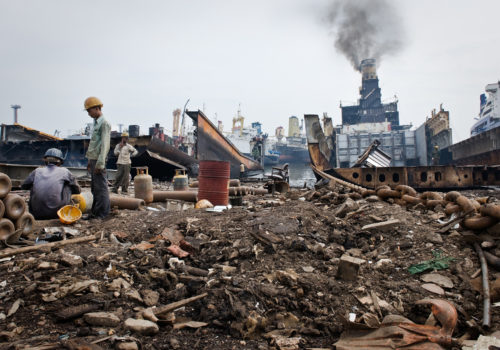Born 1976 in Eastern Germany and witnessing the fall of the system in front of his eyes led. Marco to engage in documenting the social contrasts in our world. This facination has led him to travel to over 54 countries in his lifetime whilst photographing the past 15 years of these experiences.
His professional career started out after his 20 month solo Mountain bike journey from Europe to Africa to Asia, documenting urban, rural and nomadic lifestyles in an attempt to capture the everyday lives of a plethora of cultures.
He uses a Nikon D300, Nikon D3x with Lens 24mm 2,8, 35mm 2,0, 50mm 1,2, 85 mm 1,8, 24 – 70mm 2,8.
In recent light Marco is more concerned with life conditions through pictorial stories of his reports. Having recently returned from Haiti, documenting the failing work of the UN , various NGO’s and local governments after recieving 10 billion in aid for the disastrous earthquake in Haiti.
His is currently working with the DPA, Picture Alliance, Getty Images a.s.o.
3.
Ship Breaking Yards – India
Facts:
Behind the Story …
* Scrap yards north of the Bombay docks in Mumbai, India
* Daily work with highly toxic substances under dangerous conditions
* 20,000-ton freighters are to be completely dismantled in no later than 12 weeks
* In Mumbai alone there over 6,000 workers in the shipyards
* Direct Violation of the Basel convention
Infront of the lens …
One morning in Mumbai East: I arrive hours after the workers have already been there on the difficult terrain of the scrap yard with a soundtrack of deafening noise. Booming steel, the hiss of the torch and metal hammers do not allow normal conversation. It is stuffy and the air isfilled with the stench of oil.
Every morning, men come from poor, rural areas in India or Pakistan to work for a daily wage of less than two euros in inhumane conditions in this area. Virtually unprotected by any serious safety code renders them vulnerable to the breaking apart of the large ship ruins,All under the hand of corporations that have organized these deals that conduce business of the shipyard operators: the scrapping of old freighters from around the world (also from the western industrial nations) and the export of contaminated steel scrap are typical of the inhumane working conditions and disregard for international law.
This makes it a very lucrative business.
It is not without reason that this business is condemned as a violation of the Basel conventions; contaminated scrap metal is a commodity, the working conditions lead to common accidents like; explosions,fires, bone fractures, burns and poisoning. What’s more:
The workers are exposed daily to noise, and due to inadequate protective clothing are subject to highly toxic substances such as asbestos, lead, oil, arsenic or chromium.
By powering the business with oil and marine diesel engine the surrounding slums are affected, the polluted sea water is used by residents for washing clothes and cooking.
Despite this happeing in the shipbreaking yards of Mumbai which is a breach of international guidelines, and is known ; The exploitation dependent people on starvation wages under the conditions on the Ship Breaking Yards have no end.
















